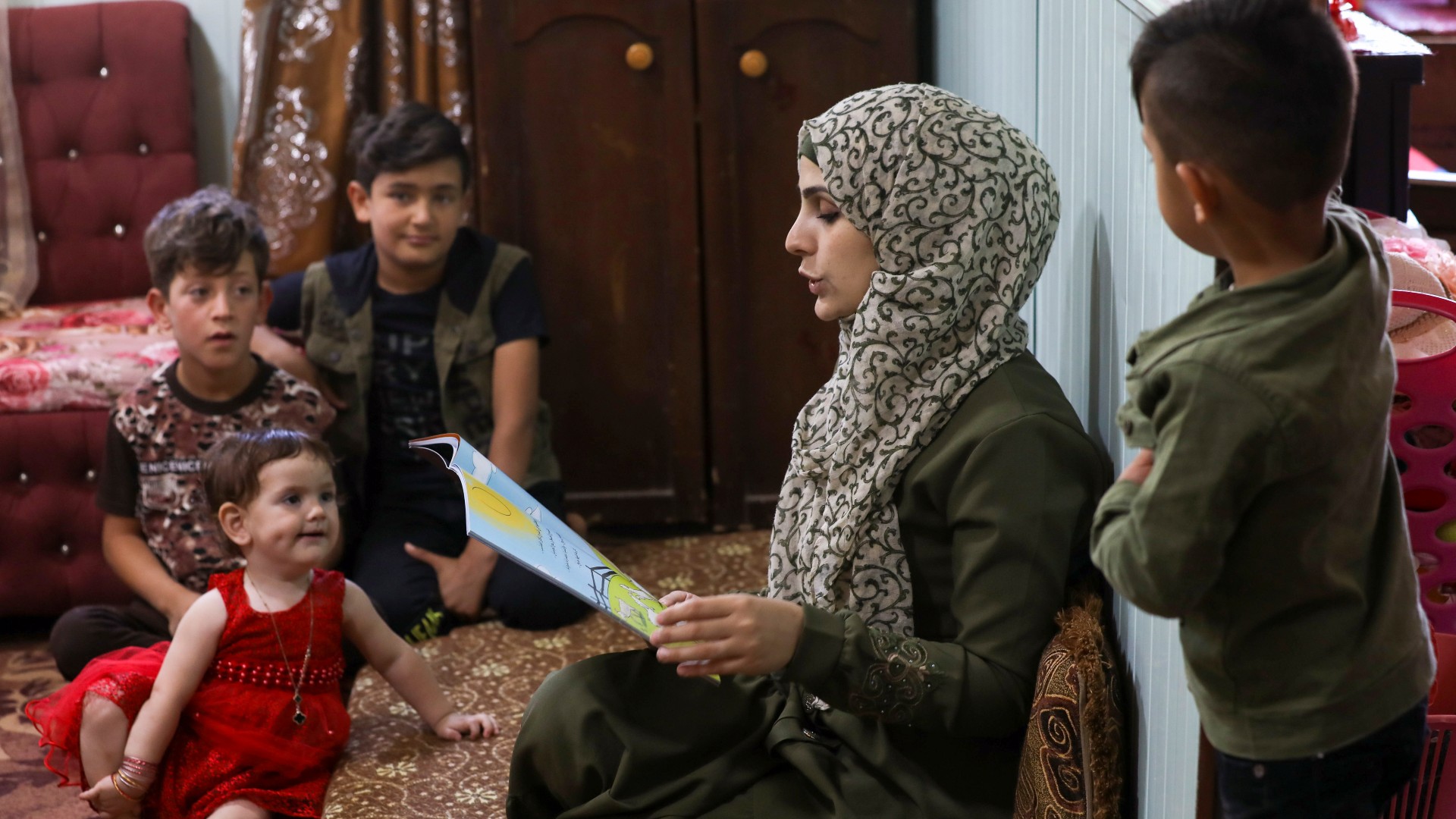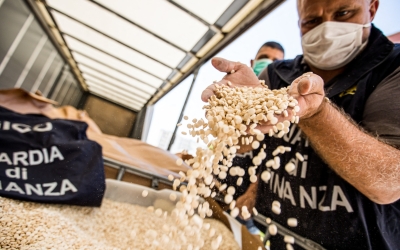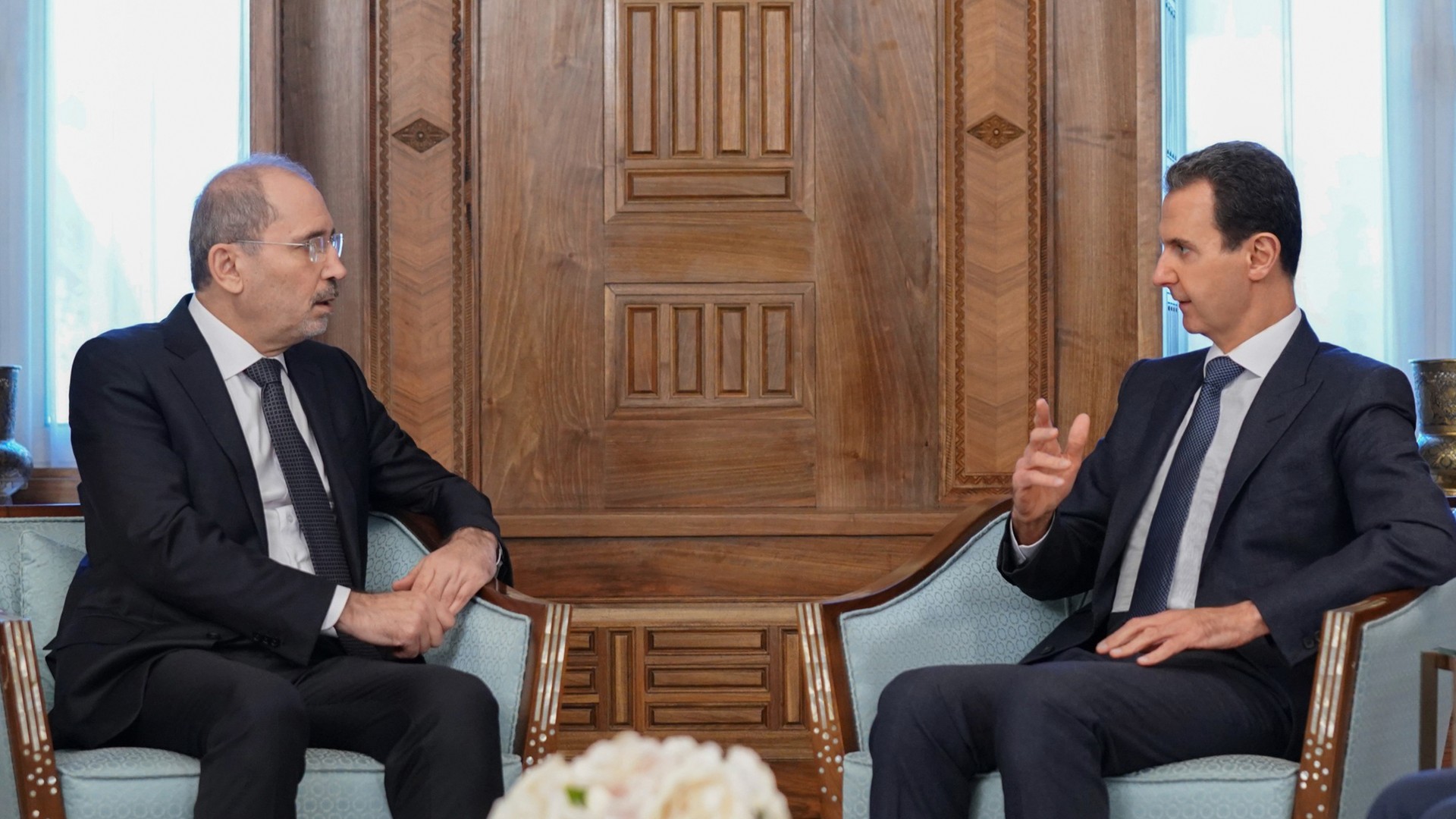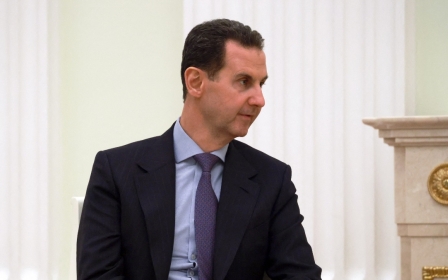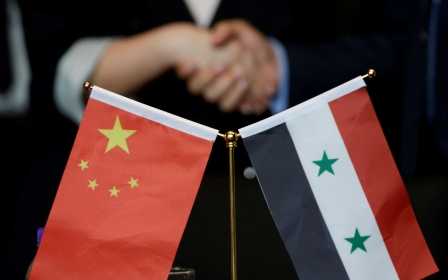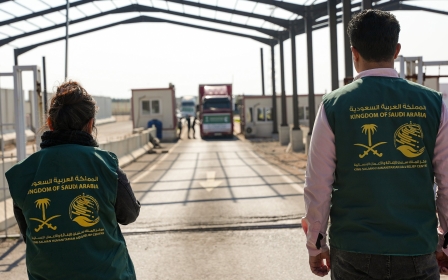Jordan’s plan for Syria normalisation: Refugees, drugs and militias
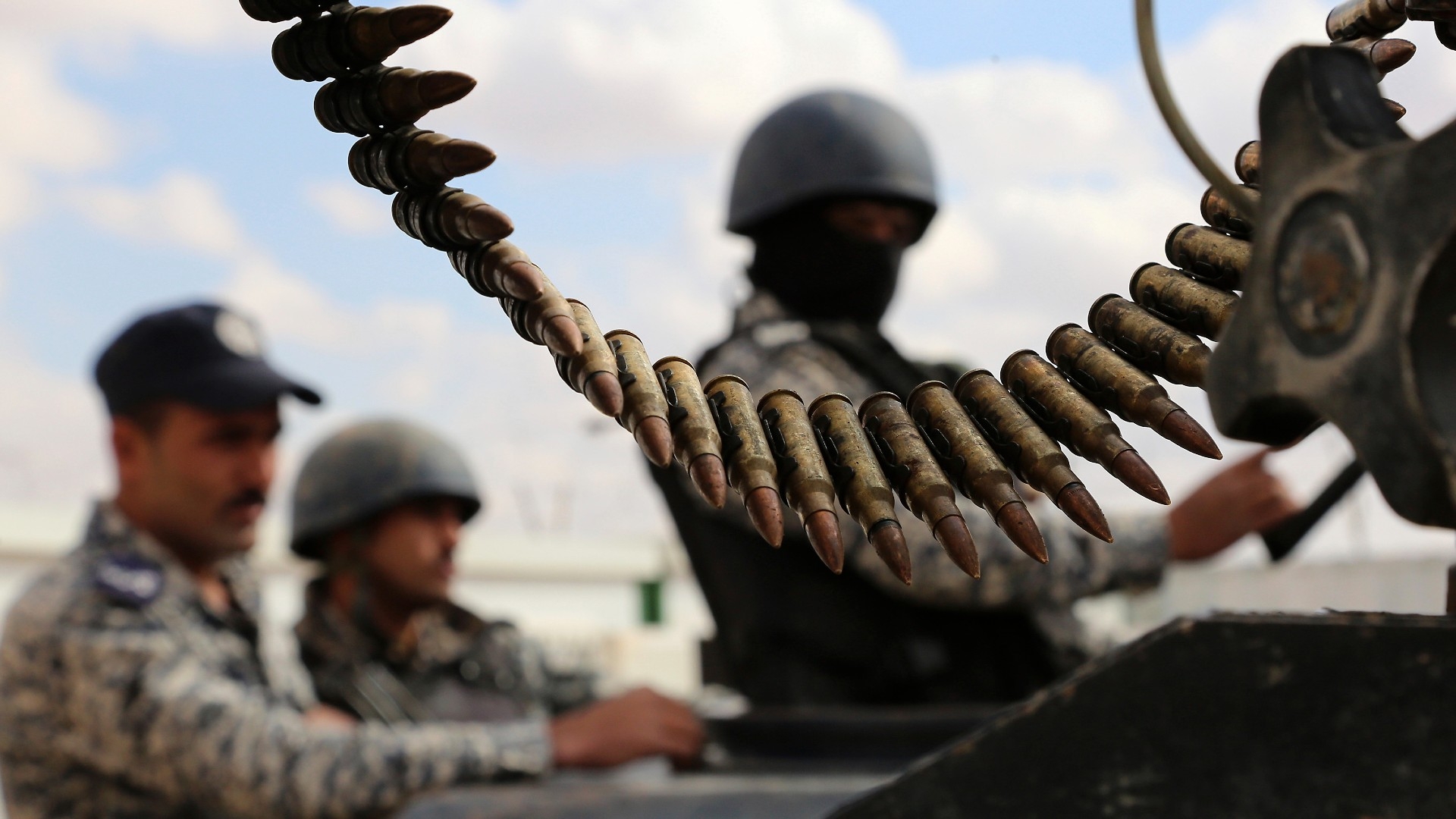
Refugee returns, smuggling and militias are among the key issues Jordan is seeking to resolve with Syria as part of its plan to normalise Arab relations with Damascus, Jordanian officials told Middle East Eye.
The plan is based on the idea of reciprocity, said Mohammad Momani, a member of the Jordanian Senate’s Arab and Foreign Relations Committee. “Help us so that we can help you,” as he put it.
In recent weeks, Syrian normalisation with its Arab neighbours has gathered pace, with Saudi Arabia the latest country to publicly re-engage with Damascus.
In 2021, Jordan, which has taken in some 675,000 Syrian refugees, opened a key border crossing with Syria and began high-level talks with its officials. Yet the relationship has not been easy, with cross-border weapons and drug smuggling becoming an occasionally deadly issue and contributing to increased narcotics problems in the kingdom.
According to Momani, the issue of refugees is one of the top priorities in Jordan’s latest push for a deal with Syria. The plan, which hopes to resolve issues between Syria and other Arab countries and help end Syria’s 11-year war, is based on “positive steps that the Syrian regime will take on refugees, namely that a general amnesty will be declared allowing the refugees to return”.
New MEE newsletter: Jerusalem Dispatch
Sign up to get the latest insights and analysis on Israel-Palestine, alongside Turkey Unpacked and other MEE newsletters
The initiative will also call for security reform in Syria and stress the need to prevent pro-Assad militias, many of which are backed by Iran, from threatening regional security, he said.
“They need to challenge drugs and weapons smuggling. This will be seen as a positive step and will be reciprocated with a step from the international community,” Momani added.
Momani, who previously served as media minister, said the foreign minister has been keen on communicating to Syria the idea of reciprocity.
“We as Jordanians and as Arabs have an interest in Syria’s return to the Arab fold. We need to close the previous chapter,” he said.
“Syria must return, and this is a realistic position. Syrians must be able to enjoy security and stability so that they can return and live in dignity.”
Consultations with Arab states
Though Jordan’s outreach to Syria in recent years has not gone smoothly, the sight of various other Arab countries opening embassies in Damascus and welcoming Syrian President Bashar al-Assad has prompted fears Amman could be left behind.
Similarly, there is a feeling that Arab countries have lost influence in Syria after many of them broke ties with Assad following his deadly crackdown on protests in 2011.
A Jordanian government source, speaking on condition of anonymity, said: “The initiative aims at responding to the current reality in Syria so that we don’t leave the region open to others while Arabs have been absent for years.”
The source said the deal “will not be for free or without conditions”.
Amman plans to get a draft ready to then consult with other Arab countries, who are expected to present their own conditions for the total normalisation with Syria.
“For example, what concerns Jordan is the smuggling of weapons and drugs from Syria, and the need for a bigger effort by the Syrians in dealing with this issue,” the source said.
In return, Jordan, through its consultation with Arabs, will seek to gradually reduce the sanctions on Assad’s government and will start work on reconstruction and the return of refugees.
According to the source, this would include a national reconciliation drive that includes the release of prisoners and the beginning of a democratic political process that will result in free general elections.
Jordan’s consultations with Arab countries have already begun. On Saturday, King Abdullah II visited Bahrain, which reopened its Damascus embassy in 2019. Jordanian Foreign Minister Ayman Safadi also hosted his Lebanese counterpart Abdullah Bou Habib on Tuesday.
During his meeting with Bou Habib, Safadi said Jordan is coordinating with the international community.
He added that Amman wants to reach a political solution that engages the Syrian government using reciprocal steps aimed at gradually reaching the end of this crisis while dealing with its political, humanitarian and security issues.
Economic benefits
After facing a decade of conflict next door, Jordan is hoping for serious economic and security benefits from its initiative. It shares a 375km-long border with Syria, and the instability accompanying the conflict has contributed to the kingdom’s economic decline.
Maamoun Abu Nuwar, a retired Jordanian general and military expert, said one of Amman’s key wishes is to reduce the presence of Iranian-backed groups near the Jordanian border, which it believes are responsible for the smuggling operations plaguing the kingdom.
“In addition, Jordan hopes to have an economic commercial benefit. But the question that is hard to answer is whether this initiative will succeed without the approval of the US and the acquiescence of Russia,” he added.
Washington continues to oppose any outreach to Damascus and leads a harsh western sanctions regime on Syria. Russia, meanwhile, is one of Assad’s most important backers and has had a significant military presence in Syria since intervening in the war on the government’s behalf in 2015.
Meanwhile, relations between Washington and Moscow are at a nadir following the Russian invasion of Ukraine.
Despite these potential obstacles, Jordan is speeding up its efforts to discuss Syrian normalisation with Arab countries, hoping to have a workable plan in place before the Arab League meets in Riyadh on 18 May.
Saudi Foreign Minister Faisal bin Farhan Al Saud will reportedly travel to Damascus in the next few days and deliver an official invitation to Asaad to attend the summit. Syria was suspended from the Arab League in 2011.
However, Abu Nuwar believed the Jordanian initiative “will run into a wall”, referring to western-backed United Nations schemes to reach a settlement in Syria through a new constitution and new elections. “This will not be acceptable to the Assad regime,” he said.
Threat of US veto
Abu Nawar said the threat of the US vetoing the Jordanian initiative looms large, particularly after an interview with US Ambassador to Jordan Henry Wooster in the Jordanian Al-Rai daily on Sunday.
In the interview, Wooster criticised increasing normalisation with the Syrian government, pointing to a 2015 UN roadmap as the right path to follow.
“The United States does not support the normalisation of relations with the Asaad regime and does not see that happening soon,” he said.
Amer Sabaileh, a political science professor, told MEE that while Arab countries are addressing the facts on the ground with their outreach to Syria, the US stance is linked closely with its view of Russia.
“Especially because there is an open conflict today between Europe and the US on one side and Russia on the other side,” he said.
“The Syrian crisis will remain open for some time because these issues are interconnected.”
Though Arab states can reach their own understandings with Damascus, the issue of western sanctions will remain.
“The US is not willing to compromise on this subject. The countries that participate in this initiative will be in a difficult position because it is the US that decides. But there are some, like the United Arab Emirates, who believe that if this issue is resolved on the Arab level, it will then move to the international level,” Sabaileh said.
This article is available in French on Middle East Eye French edition.
Middle East Eye delivers independent and unrivalled coverage and analysis of the Middle East, North Africa and beyond. To learn more about republishing this content and the associated fees, please fill out this form. More about MEE can be found here.


